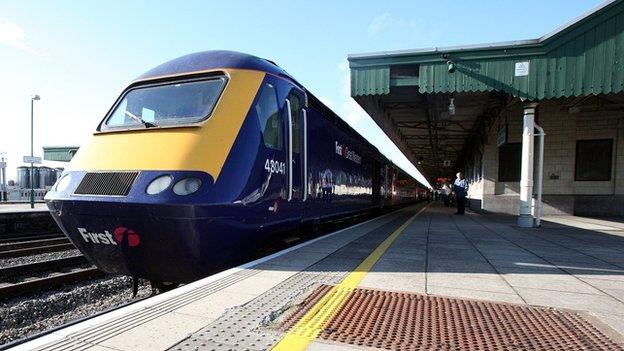First Great Western rail staff to hold series of strikes
- Published
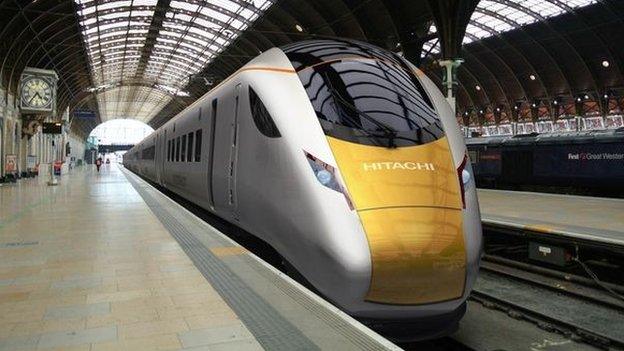
The new Hitachi high-speed trains will replace a fleet of trains from the 1970s
First Great Western rail workers are to stage strikes, including over the August Bank Holiday weekend, the Rail, Maritime and Transport union has said.
The RMT said the strike was being held over threats to jobs, services and safety from the introduction of the new Hitachi Intercity trains.
The union said it had not received the assurances it required from FGW.
The first Hitachi trains will run on the Great Western main line from 2017 and the East Coast main line from 2018.
FGW railworkers held a 48-hour strike earlier this month over the same dispute, causing disruption to tens of thousands of commuters.
The operator runs train services between London Paddington, south Wales, the Cotswolds, the Thames Valley region and the West of England.
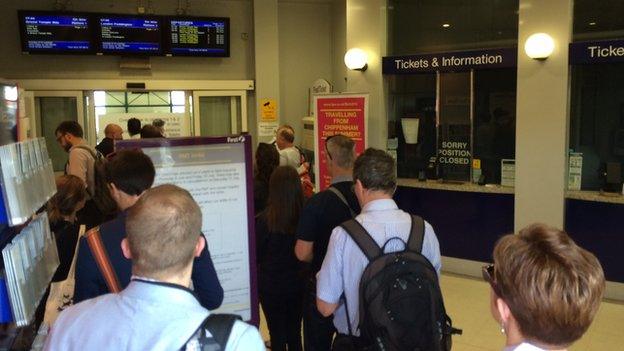
Commuters in Chippenham, in Wiltshire, were faced with delays during the last FGW strike earlier this month
'No option'
Union members, including guards and platform attendants, will walk out for 24 hours on 23 August and for 72 hours from 29 August, while members who work on maintenance will strike on 29 August and 31 August.
All of the strikes will begin at 00:01 BST and end at 23:59.
RMT general secretary Mick Cash said: "Despite strenuous efforts by our negotiators, we have not been able to secure the kind of progress required in the key areas of jobs, services and safety for us to reach an agreement.
"As a result we have no option but to put further action on.
"The fact remains that if it is good enough for East Coast, using the same trains, to meet the very basic assurances sought by this trade union then it is good enough for First Great Western as well."
The RMT said it had received a "lack of assurances" over job protection for engineers.
The union added it was also concerned the role of guards and platform staff would be diluted by plans for drivers to operate train doors.
It also criticised the proposed removal of buffet facilities from trains.
The RMT said it had received these assurances over plans to introduce similar trains on the East Coast.
The new Hitachi Class 800 Super Express trains are being introduced under the Intercity Express Programme (IEP) and will eventually replace the Intercity 125.
They are capable at running up to 140mph and will first be rolled out on routes between London Paddington and Oxford, Bristol and south Wales.
'More train managers'
An FGW spokesman said the new trains would have more seats and deliver faster and more frequent journeys for passengers.
He said: "Our plans mean more train managers on board our trains, not less.
"The key issue remains, that we want the driver to close the doors, which is fundamental to our ability to run the faster, more frequent services customers should expect from a 21st Century railway."
"This method has been used safely across the UK rail industry for decades."
The spokesman said FGW would hold conversations with the RMT later this week.
- Published12 March 2015
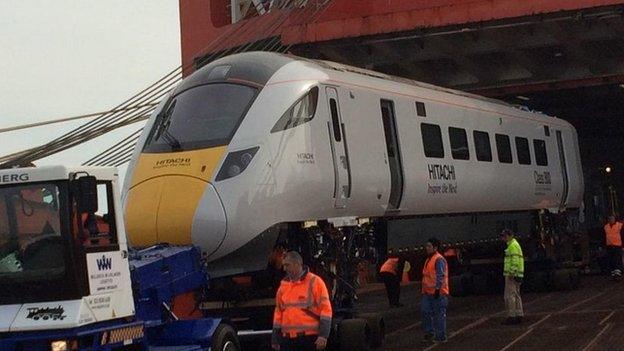
- Published30 June 2015
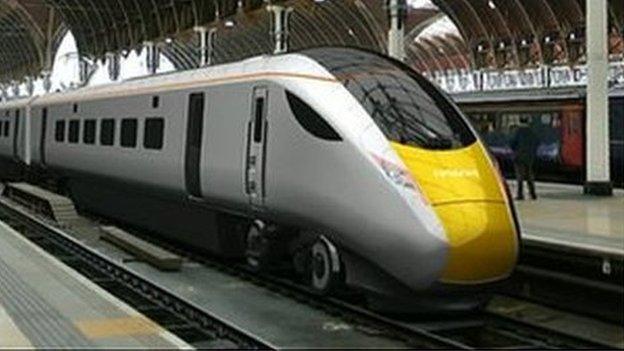
- Published9 July 2015
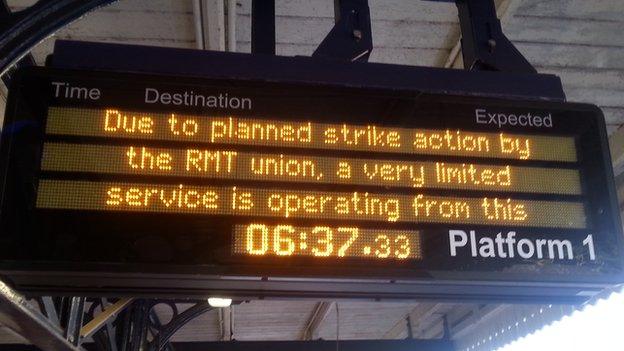
- Published10 July 2015
